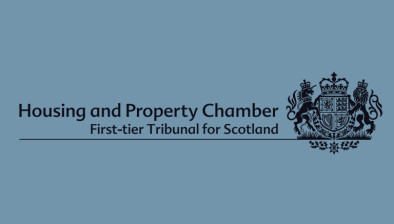First-Tier Tribunal directions ‘becoming a gross invasion of landlords’ privacy’

Emma King
Recent changes to the grounds for possession of rented properties are creating not only apparently irrational decisions but also gross invasions into the privacy and personal circumstances of private rental sector landlords, according to a Scottish legal firm.
Emma King, co-founder of Glasgow-headquartered Complete Clarity Solicitors and Simplicity Legal, cited a recent case in which a property owner seeking eviction on grounds of non-payment of rent was asked for 41 individual pieces of information, not only about his own personal affairs, but also about those of everyone in his household.
And she spoke about another case in which both landlord and tenant were in favour of the termination of their rental agreement, but the First-Tier Tribunal, which decides on such issues, refused to allow it.
She said: “We are seeing more and more situations in which landlords facing costly delays and what can seem like anomalous decisions, are opting to sell their property, further reducing the housing stock available for rental.
“Equally, the recent financial assault on second home ownership look like yet more gesture politics which simply do not address the issue of inadequate housing supply across Scotland.”
Ms King said the current issues arose from the amendments made in the Coronavirus (Recovery and Reform)(Scotland) Bill last year to the Private Housing (Tenancies)(Scotland) Act 2016, focusing on grounds for eviction.
In the original Act, there were 14 grounds on which eviction was mandatory, including non-payment of rent, criminal or anti-social behaviour or the landlord’s wish to sell the property. In the 2022 Bill, these grounds were made discretionary.
This means that all contested requests for possession are subject to a reasonableness test and must now go to the tribunal, which has discretion to refuse the eviction. Ms King said that there was “massive variation” in judgements depending on the tribunal membership.
She said: “In a recent case, the tribunal ordered the petitioner to provide evidence on 13 points relating to their personal and financial circumstances. This required 41 separate pieces of information about assets, debt, income and expenditure. Information was also required of all members of his household.
“This constitutes a gross invasion of privacy, putting the most confidential information into the public domain, including into the possession of the tenant, of whom the tribunal required no similar information.
“We even had a case in which the landlord wanted a possession order and the tenant agreed, since he needed evidence of dispossession to qualify for social housing, into which he very much wanted to move. But the tribunal chose to refuse the order anyway. It simply makes no sense.”
Ms King said that since the introduction of the changes, the process has become increasingly punitive, with tribunals issuing directions for huge amounts of information, leading to substantial delays and subsequent logjams in case management.
She said the tribunals were compounding the difficulties faced by private landlords such as last year’s Cost of Living (Protection of Tenants) (Scotland) Bill which imposed a rent freeze and eviction ban, and which currently is being contested by landlords’ associations who are seeking a judicial review.
Huge changes are also underway in the short-term letting sector, in which new rules mean that as well as fees for permissions, certificates and licences, operators will need energy performance certificates, fire safety, gas, electricity and electrical appliances compliance reports and buildings and public liability insurances.
Ms King said: “Most landlords are responsible. They are registered as required, they lodge deposits correctly and they are all for tenant protection, since mutually beneficial long-term tenancies are in everyone’s interests. But there is no two-way street in the current climate.
“There needs to be a rebalancing of the relationship and it is to be hoped the judicial review will go some way to establishing this. But, as a first step, the changes to grounds for eviction should be reversed.
“Then, ideally we should go back to the pre-2020 environment – a market which, although it may not have been absolutely perfect, worked much more effectively in the interests of all the parties involved.”



